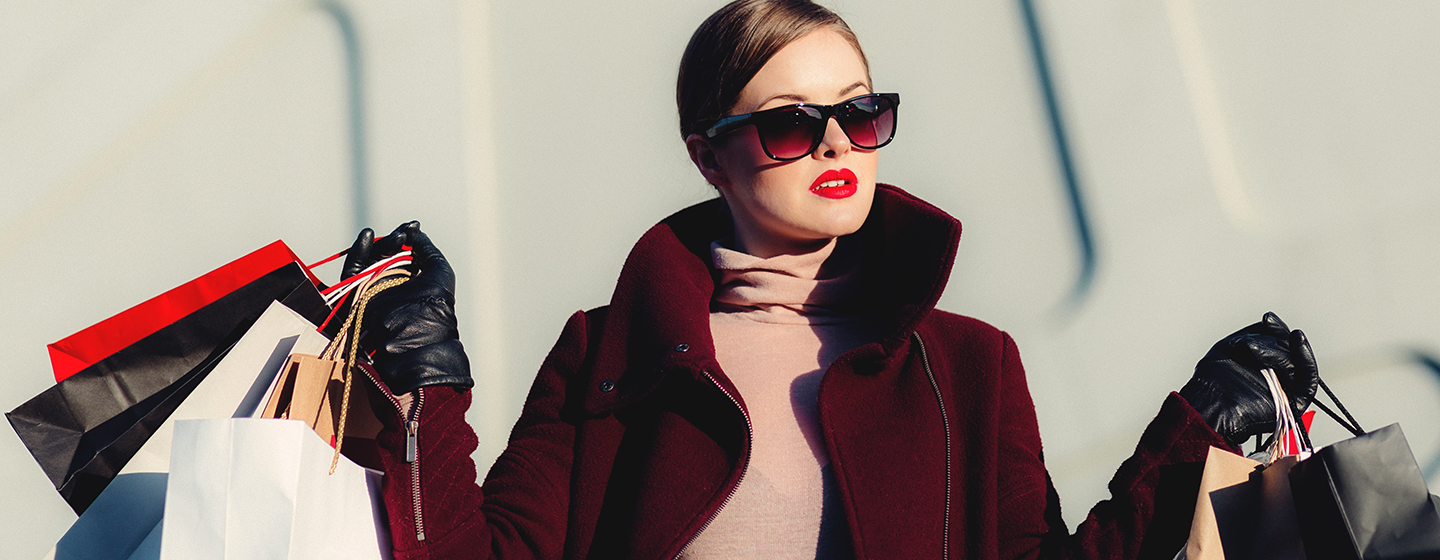
Online Luxury Fashion: What people expect from their digital customer experience
Online Luxury Fashion: What people expect from their digital customer experience
Why does the digital customer experience matter?
Building a better customer experience (CX) helps you nurture a company culture that is centred around customer satisfaction. This is especially important today in the digital age, where customer feedback can either make or break your brand. Customer experience focuses on the relationship between a business and its customers, and includes every form of interaction or communication with the customer, whether direct or indirect, even if it doesn’t result in a purchase. When optimizing for customer experience, marketers emphasize tasks that increase engagement at every touchpoint.
Positive experiences can help retain clients and encourage them to refer a company to others. After all, word of mouth is still one of the most influential components that drives today’s purchasing decisions. In fact, 84% of customers say that they trust online reviews as much as personal recommendations, according to a .
So what exactly do customers want from their digital experience?
CX (customer experience) platforms are a collection of tools that help companies establish their customer interaction goals. After the onset of the COVID-19 pandemic, according to a , 94% of marketers changed their digital CX strategy, and data from Pointillist suggests that digital transformation of tools and strategies remains one of the top CX priorities for brands.
A seamless digital journey was once a differentiator for businesses, but now it is a requirement, and it is what 90% of customers expect, regardless of where the touchpoint takes place.
A survey carried out by entrepreneur.com shows that 73% of businesses have increased their efforts to provide a personal service since personalisation is the next customer experience, the “must-have” that will define the coming years.
Personalised experience
Customers want to be seen as more than a transaction. They want to build a relationship with a brand, and they expect that brand to cater to their specific preferences.
Multiple studies have demonstrated the consequences of not properly tailoring and curating the customer experience and that if the brand gets personalisation wrong, they are unlikely to go back and purchase a second time. Personalisation has become so meaningful to customers that nearly three quarters of consumers appreciate that businesses use personal information to make their shopping experience more relevant, as long as their personal data is not compromised. As regulations tighten, and data privacy sensitivities heighten, this encouragement is noteworthy.
Luxury
When it comes to high-end luxury, and therefore high-end pricing, customers also have high-end expectations, and who can blame them? When customers were asked to define personalisation, respondents said that they associate it with positive experiences and being made to feel special. Examples of positive personalised touch points in the digital experience include:
- Hyper-local in stock information at stores close to the customer,
- Relevant product/service recommendations base on purchase/browsing history and demographics,
- Communications addressed specifically to the customer,
- Special attention/onboarding after first time purchase,
- Targeted promotions,
- Celebrating a customer’s milestones,
- Checking in post-purchase.
Luxury is rooted in exclusivity, and as luxury goods become more ubiquitous and easier to access, people are turning towards unique experiences to fulfil a desire for the exclusive. They want an intense and emotional connection which confirms a sense of scarcity, which suggests status and a degree of elegant artisanry. There is also an evolving expectation for luxury experiences which are immersive, memorable encounters that delight in ways that feel distinctive and deeply personal.
A recent Norstat study showed that 90% of consumers feel that luxury brands fall behind their more mainstream counterparts for online experience. So, the data shows that there most certainly is an expectation, which, in many cases, it is not being met.
In April 2021, Farfetch, the luxury e-commerce platform, opened Browns Brook Street, a flagship Mayfair boutique in the heart of London’s fashion epicenter. Used in conjunction with the Brown’s app, interactive, augmented-reality mirrors in the shop’s dressing rooms offer styling guidance, and suggest complimentary products to the ones being tried on. By combining new-age technology with exceptional service, Farfetch is able to give customers a compelling reason to visit their physical store and immerse themselves in the brand experience.
As luxury brands look to navigate an increasingly, digital-first marketplace, there are several strategic imperatives that help steer the planning process. Customers want more, they expect more, and for companies to maintain a competitive edge, they must provide a unique, personal service.
With so many big changes taking place in the way companies offer their goods and services, and the types of immersive experiences customers are looking for, this is a very exciting time to deepen one’s knowledge of digital marketing and new technologies which support the management of fashion and luxury brands.
At Istituto Marangoni Dubai, we offer a wide range of courses taught by experienced experts who can help nurture your talents and help you establish a strong foundation to embark upon a career in the fashion business. For more information about the school and the our courses visit the dedicated page: .
Choosing a course might seem link a daunting task, which is why our experts are on hand to answer any questions you may have. Please feel free to get in touch if you require further information or guidance.
Professional course in Fashion e-Commerce & Digital Marketing Istituto Marangoni Dubai
